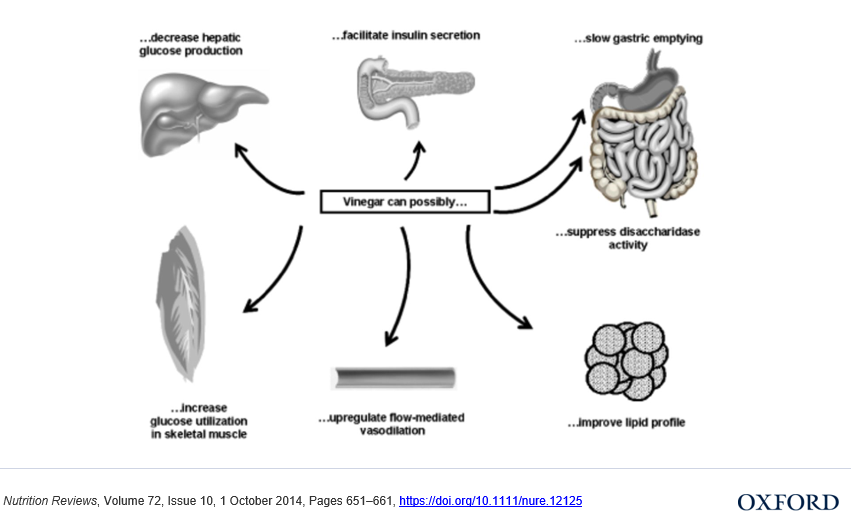A few years ago it seemed like the answer to every problem was coconut oil. Need the best cooking oil? What about an antifungal treatment? Skin and hair dry? Coconut oil, coconut oil, coconut oil. Now I feel like the same thing is happening for vinegar! It is a foot soak, hair wash, salad dressing, and now research is supporting its use in supporting proper glucose homeostasis.
In my book Finally Lose it, I discuss the research for vinegar in improving insulin sensitivity and morning blood sugar. This research, although surprising to me, had been pretty reproducible in the literature and after using it with patients in my practice I saw big changes. Consumption of ACV can not only improve glucose levels but I found it can increase satiety from a meal, decrease carbohydrate cravings and improve digestion. As a side note, one study even showed the acetic acid, the acid component of vinegar, was able to restore ovulation in women with PCOS(1)! Fascinating, right?
What do we know about the mechanism?
Although it is not yet clear just how vinegar impacts blood sugar regulation, the following slide proposes the current theory. Not discussed on this slide, other researchers believe that it may have to do with contributing to more bile acid removal in the gastrointestinal tract. This has impacts on blood sugar regulation, insulin signaling, gut hormone (incretin) signaling and potentially even energy and hypothalamic function. The human body is truly a highly coordinated orchestra and it lights me up that something as simple as vinegar can make such huge changes! (2)

Is it a magic weight loss pill?!
The jury is still out with respect to vinegar and weight loss, in the absence of any other changes. Recent research has suggested that red wine vinegar has similar effects on blood sugar control and insulin signalling although no changes in weight were seen over an 8 week period. Although we know this, it is critical to translate this information to your patients. Supplements in isolation do not lead to the changes that they desire. We need to consider physiology (insulin signalling etc) but so to is it important to layer dietary and lifestyle changes on top of it. (3)
- Wu D Kimura F Takashima A , et al. Intake of vinegar beverage is associated with restoration of ovulatory function in women with polycystic ovary syndrome. Tohoku J Exp Med . 2013;230:17–23.
- Petsiou, E. I., Mitrou, P. I., Raptis, S. A., & Dimitriadis, G. D. (2014). Effect and mechanisms of action of vinegar on glucose metabolism, lipid profile, and body weight. Nutrition Reviews, 72(10), 651–661. doi:10.1111/nure.12125
- Jasbi, P., Baker, O., Shi, X., Gonzalez, L. A., Wang, S., Anderson, S., Johnston, C. S. (2019). Daily red wine vinegar ingestion for eight weeks improves glucose homeostasis and affects the metabolome but does not reduce adiposity in adults. Food & Function. doi:10.1039/c9fo01082c

